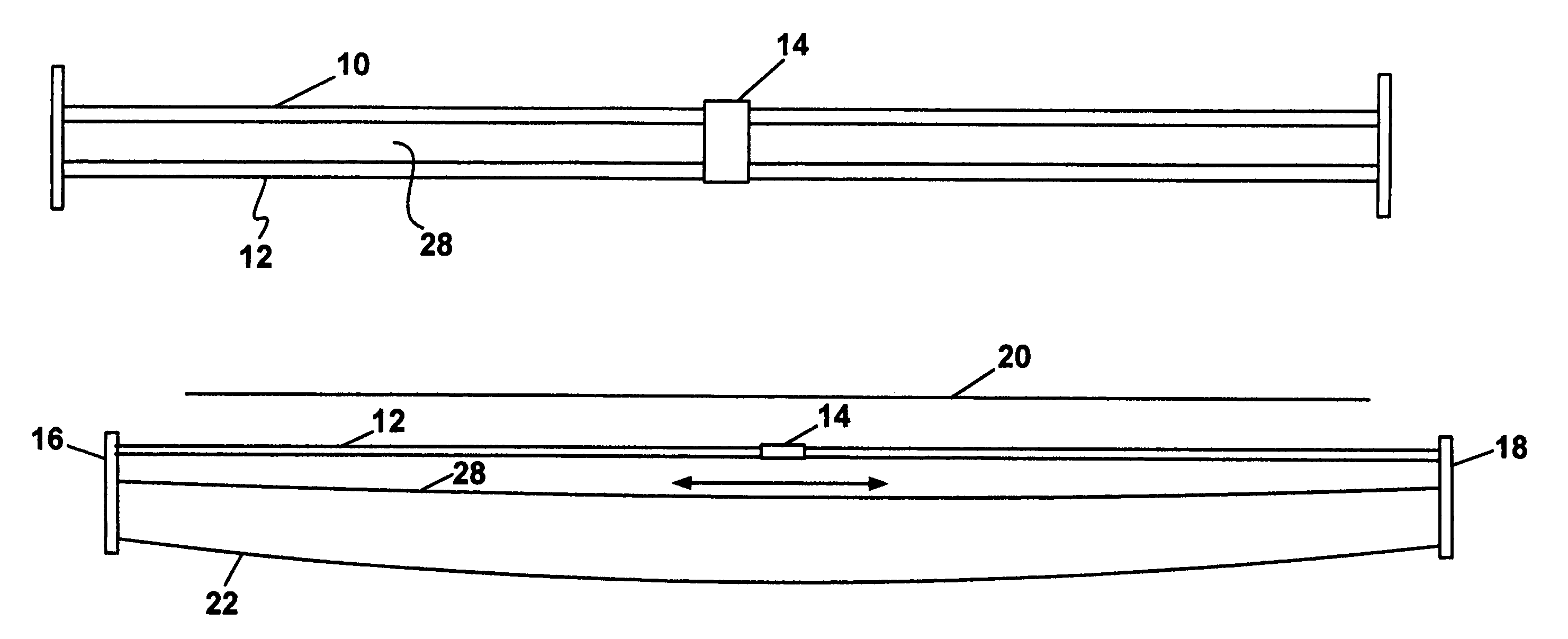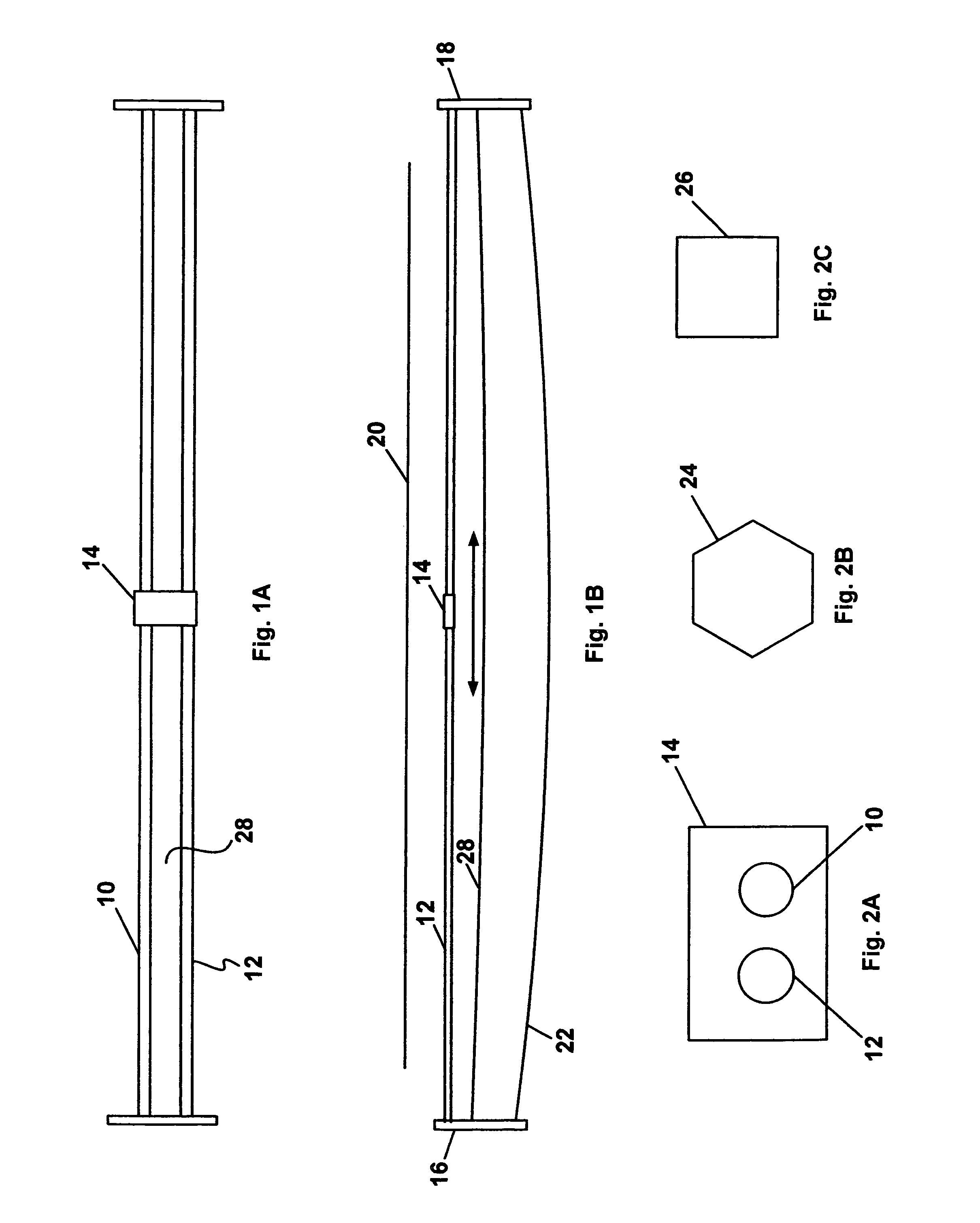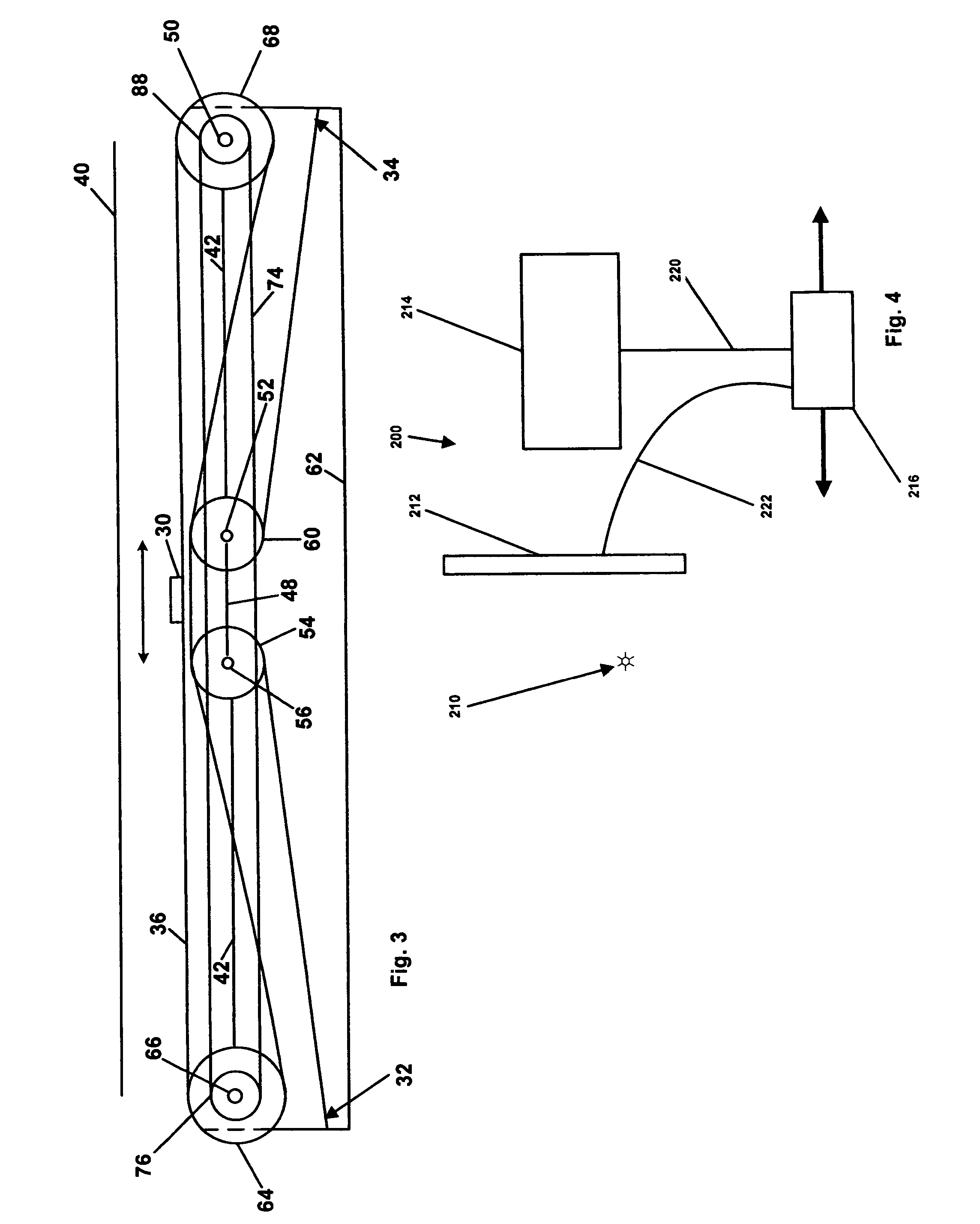Tensioned scanner rails
a scanner rail and tensioning technology, applied in the field of tensioning scanner rails, can solve the problems of inability to accurately represent sheet material produced, inability to test, and large guide rails, etc., and achieve the effects of high damping, high natural frequency, and inability to accurately represent sheet material
- Summary
- Abstract
- Description
- Claims
- Application Information
AI Technical Summary
Benefits of technology
Problems solved by technology
Method used
Image
Examples
Embodiment Construction
[0027]FIGS. 1A and 1B illustrates an embodiment of the tensioned scanner rail system that includes a tensioned rail that comprises two continuous length flexible guide rods 10, 12 that are secured to arms 16, 18 which project from the ends of the small cross section tension beam or canopy 22. A light weight, mobile device, such as an optical head 14, is supported by the flexible guide rods 10, 12 and scans back-and-forth along the cross direction of the process with application of a drive force as further described herein. Suitable mobile devices include, for example, carriages, detector devices such as optical head or sensor package, and the like. In this example, the mobile optical head 14 is positioned below the sheet of material 20 which moves continuously in the machine direction perpendicular to the path of the optical head 14. It is understood that the optical head can be positioned on either or both sides of the sheet depending on the type of scanner used.
[0028]The ends of t...
PUM
 Login to View More
Login to View More Abstract
Description
Claims
Application Information
 Login to View More
Login to View More - R&D
- Intellectual Property
- Life Sciences
- Materials
- Tech Scout
- Unparalleled Data Quality
- Higher Quality Content
- 60% Fewer Hallucinations
Browse by: Latest US Patents, China's latest patents, Technical Efficacy Thesaurus, Application Domain, Technology Topic, Popular Technical Reports.
© 2025 PatSnap. All rights reserved.Legal|Privacy policy|Modern Slavery Act Transparency Statement|Sitemap|About US| Contact US: help@patsnap.com



